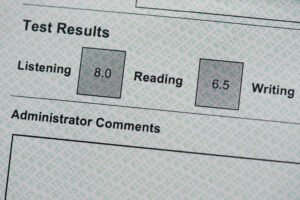Artificial Intelligence (AI) is reshaping the way K-12 education functions, offering opportunities to personalize learning, increase efficiency, and prepare students for the future. Yet, alongside these advancements come ethical concerns and potential pitfalls. Educators and policymakers must navigate these complexities with care.
Opportunities Presented by AI
AI in education brings transformative possibilities:
- Personalized Learning: AI allows for tailored educational experiences by adapting to each student’s strengths, weaknesses, and learning style. This personalization can help students reach new academic heights and even prepare them for elite university admissions. Explore how AI might aid a student’s path to Stanford or Yale.
- Administrative Efficiency: Teachers can save time on routine tasks like grading and attendance tracking, freeing them to focus on instruction. AI tools also provide data-driven insights into student progress, allowing educators to intervene early when necessary.
- Enhanced Engagement: AI-driven platforms introduce gamified learning and interactive tools, making education more engaging and encouraging students to develop critical thinking skills.
Challenges and Ethical Considerations
While AI’s potential is significant, its challenges cannot be ignored:
- Equity and Access: Not all schools can afford advanced AI tools, creating a potential gap in educational opportunities. Addressing this digital divide is crucial to ensure equitable learning environments.
- Academic Integrity: AI tools are powerful but can also be misused. For example, students might leverage AI to gain an unfair advantage on exams. Educators must establish safeguards to maintain academic honesty. Discover how AI might be misused in multiple-choice exams.
- Dependence on Technology: Over-reliance on AI could hinder critical thinking and creativity, as students might become overly dependent on automated solutions.
- Data Privacy: AI relies on large amounts of data, raising concerns about how student information is collected, stored, and used. Transparent policies are essential to protect privacy.
Balancing Innovation with Responsibility
For AI to positively impact education, careful planning and proactive measures are necessary:
- Professional Development: Teachers must be trained to effectively integrate AI tools while understanding their limitations.
- Ethical Policies: Clear guidelines must be established to prevent misuse and ensure the responsible use of AI in classrooms. This includes addressing concerns about AI’s role in both academic support and dishonesty.
- Equitable Access: Governments and educational institutions should work together to bridge the digital divide, ensuring all students can benefit from AI technologies.
- Encouraging Responsible Use: Schools must educate students on the ethical implications of AI, promoting its use as a tool for learning and personal growth rather than shortcuts.
Conclusion
AI has the potential to revolutionize K-12 education, offering personalized learning experiences and fostering academic success. However, as we embrace these tools, it’s critical to remain vigilant about their ethical and equitable use. From helping students aim for Ivy League admissions (learn more here) to addressing concerns about exam integrity (read about potential pitfalls), AI’s impact on education requires a balanced approach. With thoughtful implementation, AI can enhance learning outcomes while maintaining the integrity of the educational experience.



